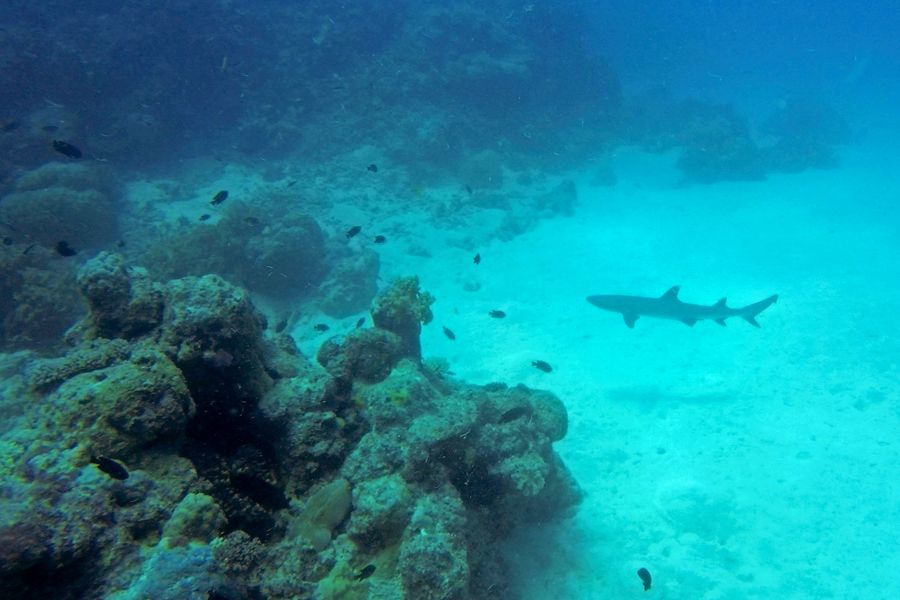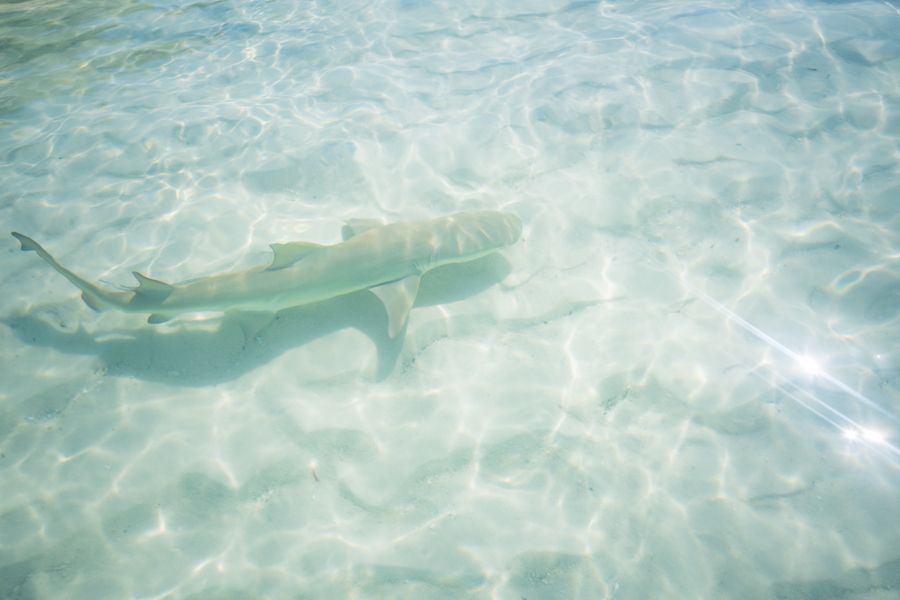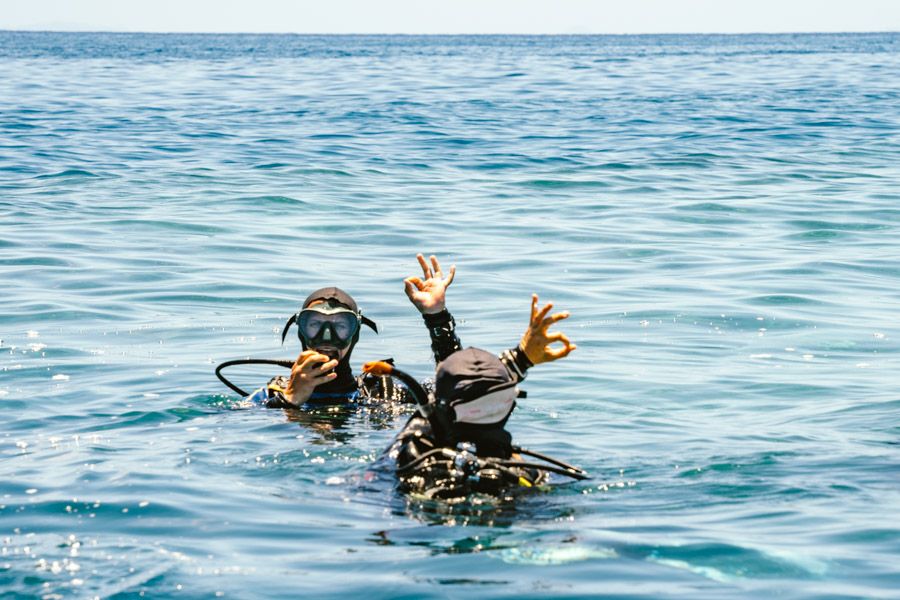Shark Smart: Shark Safety in the Whitsundays
 Blacktip Reef Shark on the Great Barrier Reef.
Blacktip Reef Shark on the Great Barrier Reef.
The Whitsunday Islands have some of the most beautiful beaches in the world and the surrounding Great Barrier Reef is home to vast amounts of marine life, including many species of shark.
Due to media coverage and public stereotyping, there are many misconceptions about sharks. Many people do not know that sharks are one of the most vital animals on the planet, as they play a key role in maintaining the delicate balance of biodiverse reef ecosystems.
It is important to educate yourself about sharks in the Great Barrier Reef and shark safety guidelines before getting out on the water - time to get SharkSmart!
It's Important to be SharkSmart
While sharks live in the ocean surrounding Australia, shark encounters with humans are incredibly rare. So rare in fact that you are more likely to be struck by lightning than have a negative encounter with a shark!
However, there will always be some level of risk involved when you enter a shark’s natural habitat. It is important to remember sharks are wild creatures - we cannot control their behaviour, but we can educate ourselves and minimise the potential risks.
Sharksmart safety guidelines in the Whitsundays:
1. Do not swim at dawn or dusk - Sharks are more active at these times of the day.
2. Always swim in clear water - Murky water, busy anchorages, estuary mouths or canals can increase the potential of mistaken interactions with sharks.
3. Avoid swimming around large schools of fish - Baitfish are particularly attractive to many sharks.
4. Don’t throw food scraps or clean fish overboard - This includes open ocean, anchorages, or where people are swimming.
5. Avoid swimming where fish are being cleaned
6. Always swim, surf, snorkel or dive with a buddy
7. Follow local signage and swim between the flags at patrolled beaches - "No Swimming" signs have been placed in locations such as Cid Harbour, and it is important that everyone follow these directions for their own safety.
8. Ask the locals which areas are known to have a muddy bottom, or are a popular fishing area - This will help you to avoid areas that may have a higher risk of a shark encounter.
 Lemon Shark swimming in Hill Inlet, off Whitsunday Island.
Lemon Shark swimming in Hill Inlet, off Whitsunday Island.
Sharks in the Whitsundays
The most common sharks you will spot in the Whitsundays are reef sharks, including Blacktips, Whitetips and Wobbegongs. These shark species are largely shy and non-aggressive, fleeing quickly at the sight of swimmers.
Larger species such as lemon, hammerhead, bull and tiger sharks are sometimes encountered around the Great Barrier Reef but, when left alone, these sharks rarely pose any threat to divers. Sharks are incredibly intelligent creatures and avoid human interaction as much as possible.
While there have been a few recent shark incidents in the Whitsundays, it is important to remember that, had the people involved been properly aware of SharkSmart behaviours, these isolated incidents could have been avoided. This is one of many indicators that more shark education is needed.
 Blacktip Reef Shark in the Whitsundays.
Blacktip Reef Shark in the Whitsundays.
Public Education is Key
Following the September 2018 shark attacks in Cid Harbour, the Queensland Government conducted research into the prevalence and behaviour of sharks in the Cid Harbour area. The study found that, although Cid Harbour was reported repeatedly by the media as a 'shark hot spot', numbers of sharks in the area were actually no higher than in surrounding areas or than expected.
Further to this point, data from several sharks tagged during the investigation also indicated that some sharks often travel large distances in the Whitsunday region, moving between the coast, islands and offshore reefs. One shark even travelled all the way to the Torres Strait Islands before returning to the Whitsundays 3 months later!
The study’s interim report concluded that 'the increase in unwanted encounters was attributed mainly to lack of awareness, ignoring safe practices and discarding food off boats. People have some knowledge of swim-safe and ‘shark smart’ behaviours, but do not have enough knowledge to inform their choices about risky behaviour.
Moving forward, it is essential that we increase our knowledge of shark behaviour and safe swimming practices with information from credible sources. By educating ourselves and acting accordingly we can give sharks the space and respect they need and greatly reduce our chances of a negative encounter. So keep an eye out for educational programs by the Great Barrier Reef Marine Park Authority (GBRMPA) and the Queensland Government to read before entering the water.

It’s important to remember, that when you enter the ocean you do so at your own risk, even considering shark attacks are extremely rare occurrences!
If you’re still wishing to visit this beautiful part of the world, but are concerned with getting in the water, there are plenty of island resorts, pools, underwater observatories and even aquariums to get up close and personal with the Whitsundays. The world-famous Whitehaven Beach offers stunning views and shallow clear water to swim in right off the beach, which provide a worry-free swimming experience in the Whitsundays sparkling waters.
For more information on the vital importance of sharks in the Whitsunday reef ecosystems, click here.












